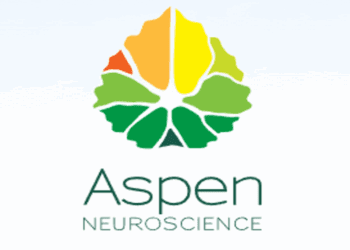Study: “A therapeutic small molecule enhances γ-oscillations and improves cognition/memory in Alzheimer’s disease model mice”
Publisher: PNAS
Published date: August 2024
PubMed link to study: https://pubmed.ncbi.nlm.nih.gov/39106304/
Recent research shows that enhanced gamma oscillations improve cognition/memory in Alzheimer’s disease mouse models. The research identified a small molecule, DDL-920, that enhances gamma oscillations—brain rhythms critical for cognitive processes—by modulating specific receptors in the brain. This new therapeutic approach targets the brain’s natural activity patterns, providing potential benefits for treating cognitive decline associated with Alzheimer’s disease and possibly other neurological disorders.
Feel welcome to share your own thoughts on this research in the comment section below as well. I will be happy to discuss and learn more about how you see its potential in this field.
A New Approach to Enhancing Brain Function in Alzheimer’s Disease
Alzheimer’s disease is a leading cause of cognitive decline, affecting millions worldwide. While little is known about the underlying pathology, focus has particularly been on the accumulation of amyloid-beta plaques in the brain. Although, effective treatments that can restore cognitive function have remained limited. Current therapies, such as Aducanumab and Lecanemab, focus on reducing these plaques but have shown only modest effects on cognition. Both of these drugs have stirred strong debate in the scientific community.
Recent research takes a different approach by targeting a fundamental aspect of brain function—gamma oscillations. Gamma oscillations (30 to 120 Hz) are brain rhythms involved in various cognitive processes, including memory, attention, and learning. These oscillations are reduced in many neurological conditions, including Alzheimer’s disease. DDL-920, a newly identified small molecule, aims to restore these oscillations and, by doing so, improve cognitive function.
The Role of Gamma Oscillations in Cognitive Function
Gamma oscillations provide the timing for recruitment of brain activity required for linking together neuronal ensembles engaged in specific tasks. In Alzheimer’s disease, these oscillations are often diminished early in the disease process, even before substantial amyloid-beta plaques accumulate. This reduction in gamma oscillations is associated with the cognitive deficits observed in Alzheimer’s disease, such as memory loss and impaired attention.
The importance of gamma oscillations extends beyond Alzheimer’s disease. Reduced gamma activity is also seen in conditions like epilepsy, Parkinson’s disease, schizophrenia, and depression, all of which involve cognitive dysfunction. Therefore, finding ways to enhance gamma oscillations could potentially have broad therapeutic implications.
How DDL-920 Works
DDL-920 is a negative allosteric modulator that specifically targets the gamma-aminobutyric acid type A (GABA-A) receptors in the brain. These receptors play a role in regulating inhibitory signals, which help balance brain activity. In Alzheimer’s disease, a particular type of neuron called parvalbumin-expressing interneurons (PV+INs) shows reduced activity, contributing to diminished gamma oscillations.
The molecule DDL-920 selectively modulates GABA-A receptors on these PV+INs. By reducing the inhibitory signals on these neurons, DDL-920 effectively enhances their activity, leading to an increase in gamma oscillations. This is particularly relevant because these neurons are key generators of gamma oscillations, which are critical for cognitive functions like memory and attention. This increase in gamma oscillations improve cognition/memory in the rodent Alzheimer’s models used for this research.
Although not directly confirmed in humans, the authors note similarities in the expression of GABA-A receptor subunits between mice and humans, indicating the potential relevance of DDL-920 for human treatment.
Results from Alzheimer’s Disease Model Mice
In studies conducted on Alzheimer’s disease model mice, DDL-920 was administered orally twice daily for two weeks. The treatment led to a significant restoration of cognitive and memory function in these mice, as demonstrated by their performance in tasks like the Barnes maze, a test commonly used to assess spatial memory in rodents.
The treated mice showed improvements comparable to healthy mice, indicating that DDL-920 effectively counteracted the cognitive deficits associated with Alzheimer’s in this model. Importantly, these effects were achieved by enhancing the brain’s natural gamma oscillations, rather than directly targeting amyloid-beta plaques, which marks a significant shift in the approach to treating Alzheimer’s disease.
Potential Implications for Alzheimer’s Treatment
The development of DDL-920 represents a potential new direction in Alzheimer’s research. Unlike current treatments that primarily focus on reducing amyloid-beta plaques, DDL-920 aims to restore normal brain function by targeting the mechanisms that support cognitive processes. By enhancing gamma oscillations, DDL-920 could offer a more direct way to improve cognitive performance in Alzheimer’s disease patients.
The authors highlight that while external stimulation methods (like 40 Hz sensory stimulation) have been tested for enhancing gamma oscillations in humans, these methods may not synchronize with the brain’s natural rhythms effectively. In contrast, DDL-920 enhances the brain’s endogenous gamma oscillations across various frequencies, which may provide a more reliable cognitive benefit.
Broader Impact on Other Neurological Disorders
While the research is primarily focused on Alzheimer’s disease, the findings may have broader implications. Since reduced gamma oscillations are a common feature in other neurological and psychiatric disorders, enhancing these oscillations could potentially benefit conditions beyond Alzheimer’s disease. This includes diseases like schizophrenia, depression, and even age-related cognitive decline.
Next Steps in Research
While the results in animal models are promising, more research is needed to determine if DDL-920 will be effective in humans. Future studies will need to focus on understanding the molecule’s long-term safety, its specific mechanisms of action, and its efficacy across different stages of Alzheimer’s disease. Clinical trials in human subjects will be essential to confirm the preliminary findings reported here.
Conclusion
DDL-920 represents a novel approach to treating Alzheimer’s disease by enhancing gamma oscillations, a fundamental brain rhythm involved in cognitive function. According to this research the gamma oscillations improve cognition/memory in Alzheimer’s disease mouse models. As such, this small molecule offers potential not only for Alzheimer’s disease but also for other conditions where gamma oscillations are disrupted. As research progresses, DDL-920 could become an important tool against cognitive decline, supporting healthier, longer lives.




